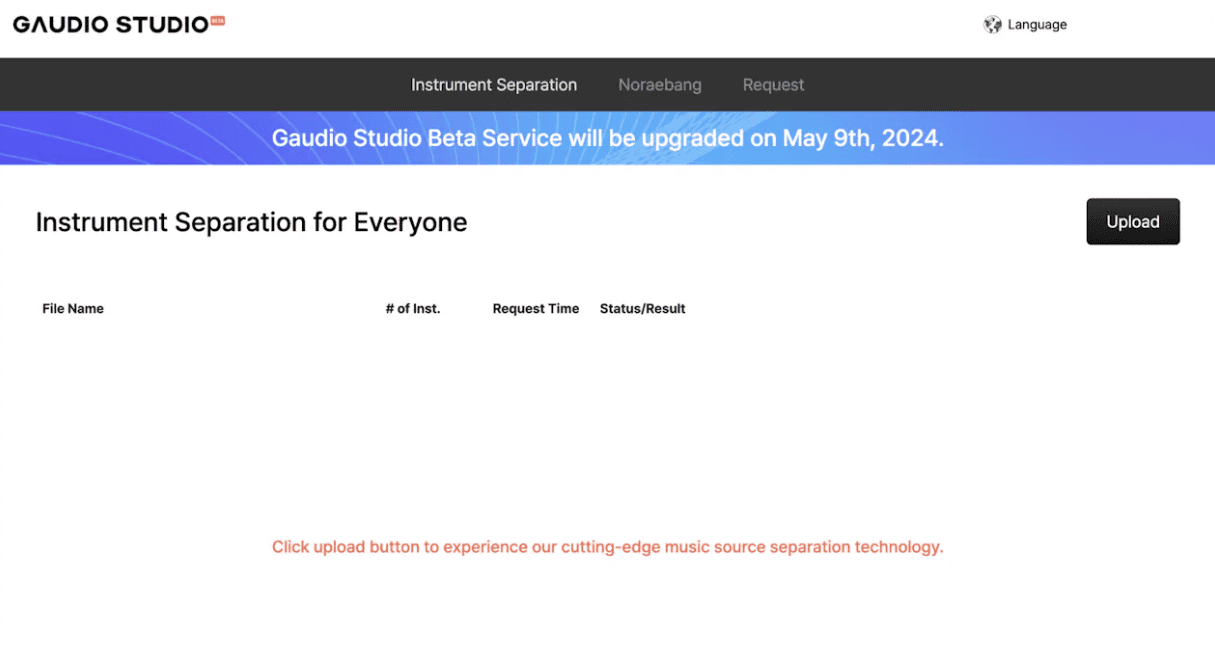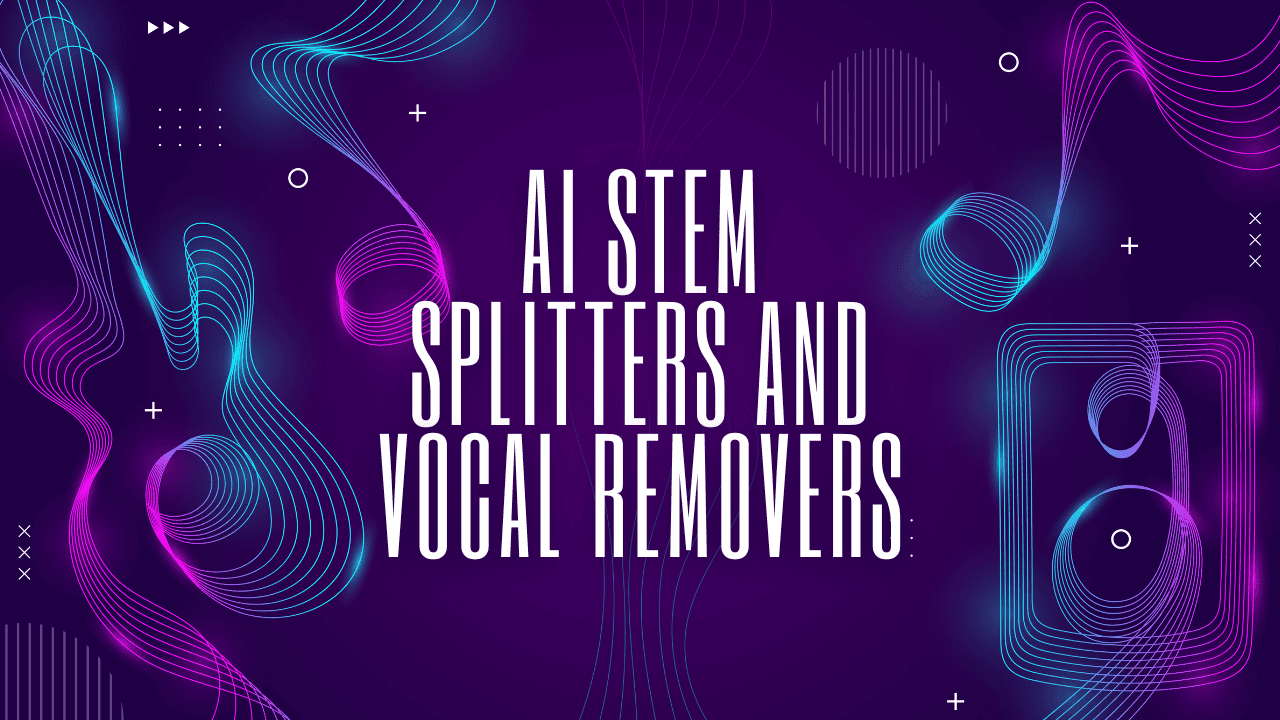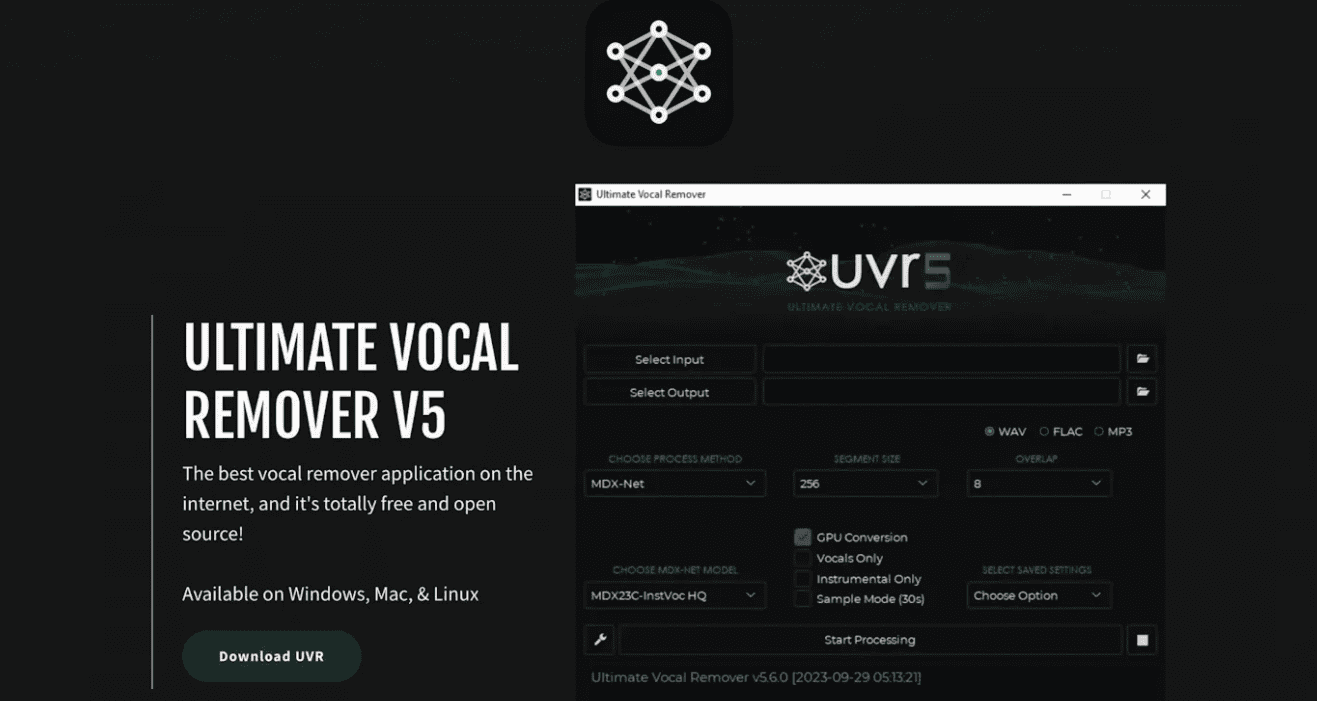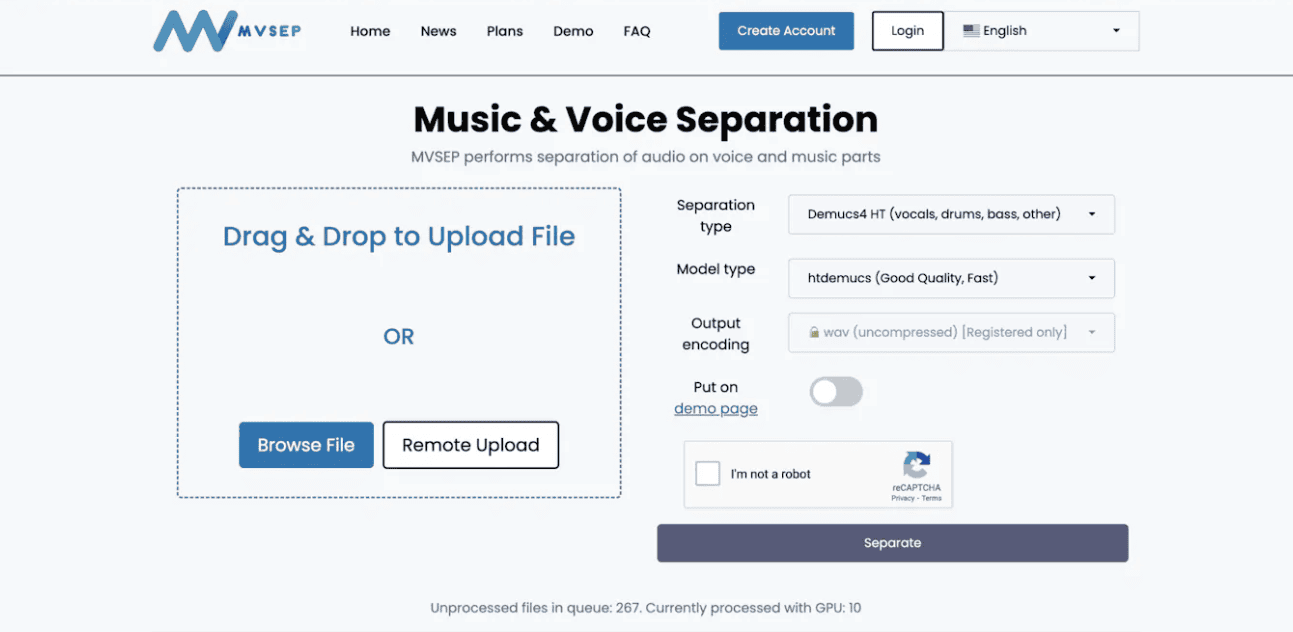Free AI stem splitters and vocal removers are handy creative tools. Many options are available, and a good number of them are free, making it easy to experiment with them. To assist you in selecting, we’ve evaluated various AI stem splitters and vocal removers, prioritizing those with no cost or with free versions (limitations are specified in our tables). We’ll begin with a brief overview for newcomers, but if you prefer, you can jump right to the list using the button or table of contents below.
What are AI stem splitters and vocal removers?
AI stem splitters (or stem separators) are software tools that can split a fully-mixed song file into individual sound files for each instrument layer. These layers are called stems. Vocal removers are specialized for isolating vocals, while other stem splitters can separate into more stems, such as bass, drums, and “other instruments.”
The most common uses for stem splitters are for creating remixes, mashups, DJ edits, and karaoke instrumentals.
These tools use machine learning algorithms that are trained to recognize the frequency material of specific sounds and isolate them automatically (hence the “AI”).
Many AI stem splitters and vocal removers use the same open-source algorithms, which are packaged in different wrappers.
The two major open-source stem-splitting algorithms are Spleeter (developed by Deezer’s audio research team) and Demucs (developed by Meta’s AI research lab in Paris).
We’ve compared multiple options even when they use the same algorithm, as there are differences in usability and features.
Without further ado, let’s get to it!
The 9 best free tools
1. Ultimate Vocal Remover 5
For those who pay close attention to audio separation technology, UVR5 is known as an essential AI stem splitter and vocal remover—and it’s free.
Not only can you select between algorithms, but you can even use an “Ensemble” mode that uses multiple algorithms simultaneously to give you the instrument-specific benefits of each.
We set it to the Demucs v4 model, and it took about six minutes to separate a six-minute song into four stems (vocals, bass, drums, and “other”).
The results were high in quality overall, though we didn’t test every single algorithm with every single musical layer. Your results may vary depending on your use case and settings.
We also had it give us an instrumental version of our test song by doing what it says on the tin — removing vocals. The quality of the instrumental was excellent.
The parameters may seem a little intimidating at first to some, but it’s easy to learn, especially with a guide like this one.
Its overall usability as an application is great, and we think it’s a no-brainer for anyone wanting to do vocal removal or instrument separation.
2. Gaudio Studio
There are a lot of browser-based AI stem splitters and vocal removers out there.
These are likely running your separations on their dedicated processors rather than the local ones on your computer, which can sometimes mean better results.
Many of them are not free, but Gaudio Studio is a notable exception. It just requires you to log in with a Google account.
Once you do that, it’s very easy to upload the song you want to split, select the instrument layers you want to isolate and submit your song to the queue.
It took about five minutes for Gaudio Studio to separate our six-minute test song into vocal, bass, drum, and “other” stems.
The quality was pretty stunning — even compared to our UVR5 test, the clarity of the stems was high all around.
As of April 2024, it’s currently in beta and will upgrade to a new version in May. The site doesn’t explain what this update entails, so we’re hoping it doesn’t mean they’re planning to monetize it any time soon.
3. MVSEP
This stem splitter is a bit like UVR5 but is browser-based instead of standalone.
It allows you to choose between several different models, quality levels, and output formats.
However, the number of settings and other advantages you have access to will depend on what service tier you choose.
We signed up for a free account for our test and separated our six-minute test song into vocal, bass, drums, and “other” stems.
We used the Demucs v4 model to see if there was any difference in quality from UVR5. It took about five minutes, and to our ears, the quality wasn’t noticeably different.
We’re not sure there’s an advantage to paying for MVSEP when UVR5 is free, but you can do your comparisons to be sure.
The main advantage of the MVSEP site may be their documentation and resources, rather than the tool itself.
You can find a table of quality rating comparisons between different audio separation algorithms and a huge database of test results for different separation types on their site.
4. StemRoller
StemRoller is another free AI stem splitter and vocal remover built with Demucs v4.
It runs standalone on your computer, but unlike UVR5, it doesn’t allow you to use different algorithms or other settings. Its feature set is far less extensive in comparison.
However, if you’re someone who gets a bit paralyzed by having too many configurations to decide between, this one might be worth trying.
All you have to do is drag your file into its window and it starts processing right away.
The results were pretty much the same in quality as running Demucs v4 in UVR5.
In addition to the usual four stems, it automatically gave us a full instrumental track.
The developer warns that it can demand a lot of processing power and take up to 15 minutes to produce the results. But it only took a few minutes on our M2 MacBook Air.
Your experience will probably depend on your machine.
5. Fadr Stems
This site offers both an AI stem splitter and automated remixing tools.
When you sign up for an account and opt for their free plan, Fadr will separate songs into four stems. Then it allows you to download them in MP3 format.
If you want to break things down into more than four stems, download them in WAV format. Then you can take advantage of several other features, you’ll have to switch to their paid subscription option.
The free version doesn’t limit the number of songs you can split per month. Also their generous file size limit of 200MB seems to apply to both free and paid options.
It processed our test song in under five minutes, but the results were not the highest quality.
In our opinion, as far as browser-based splitters go, Gaudio Studio reigns supreme.






